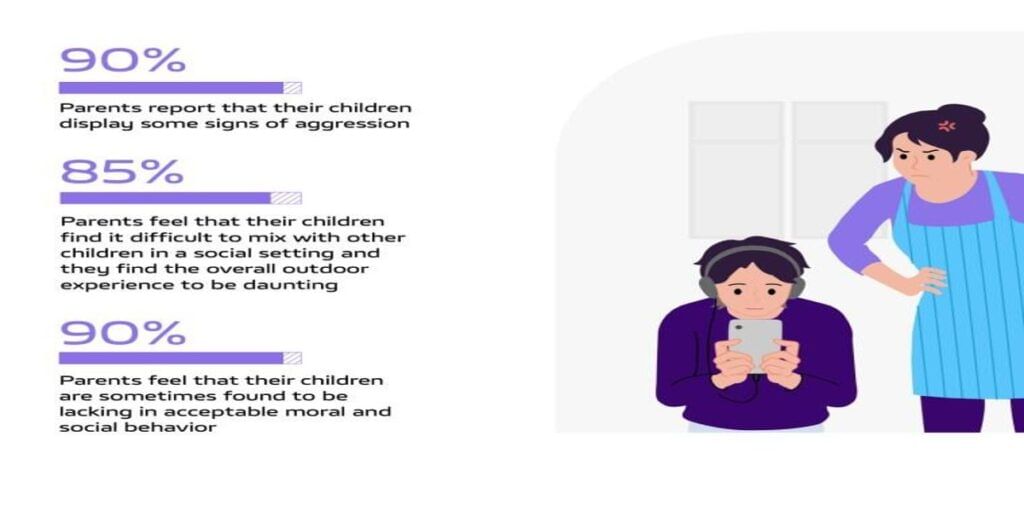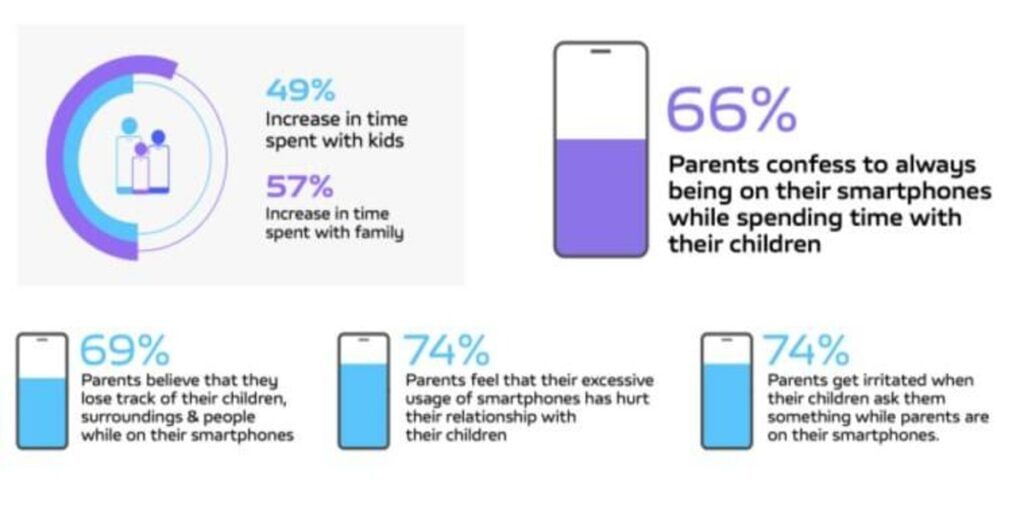Vivo announced its findings on the third edition of their study ‘Impact of Smartphones on Human Relationships 2021’. This study focuses on the behavioural impact on children due to excessive use of mobile devices both by kids and their parents. The study also showcased the growing dependence on the devices which even happened in the last year. Although parents always suggest their children to stay away from the excessive use of the mobile devices. But even they have issues with letting go of the mobile phone.
Of course, we all know the side effects of the usage of screens including laptops, desktops or smartphones. But a recent study by Vivo revealed that 80 per cent of parents spend their time on their phones. Even when they are with their kids and a whopping 74 per cent of parents confessed that excessive use of their smartphones is hurting their relationship with kids.
Also read: Realme 9i, Realme 9 Pro Plus, And Realme GT 2 Pro Alleged To Launch Soon
We cannot deny the fact that with smartphones are lives have changed. They have become a part of our lives turning essential for our needs. But since the events of last year, the lockdown and pandemic – it became even more important than before. From making us feel secure to keep us entertained and informed – it has made its way in our life. But our usage of smartphones has skyrocketed in recent times. According to the study, there has been a 32 per cent increase in the time spent on smartphones from the pre-Covid period. This is ultimately creating an impact on our relationships especially ones like parent-child relationships.
Also read: Realme 9i, Realme 9 Pro Plus, And Realme GT 2 Pro Alleged To Launch Soon
Parent-Child Relationship Affected The Most

The study shows the huge impact of smartphone usage in the lives of parents with their children. 69 per cent of parents confessed that they lose track of their children, surroundings, and people when they are immersed in their smartphones. Whereas, 74 per cent admit to getting irritated when their children ask them something. Parents already feel that smartphone usage is affecting their relationships. However, on the other, it has already started affecting the emotional and mental health of their children.
According to the study, 90 per cent of parents confessed that their children show some signs of aggression. This is due to the extensive usage of smartphones by their parents. Additionally, children are sometimes found to be lacking in acceptable moral and social behaviour. 85 per cent of parents feel that their children find it difficult to mix with other kids in a social setting. This has its ramifications on the psychological and cognitive development of children.
Also read: Jio 5G Phone: Everything You Need To Know
Some other Key Findings

Some more important numbers which have surfaced in the study:
- 66 per cent confess to being on their smartphones while spending time with their kids.
- 74 per cent of Indian parents feel that feel that their relationship with their kids maybe hurt because of smartphones.
- 75 per cent admit to having been distracted by their smartphones and not being attentive to kids even while with them.
- Consumers claim to spend an average of 6.5 hours on their smartphone per day. This shows an 32 per cent increase from last year.
- 94 per cent of people agree that the smartphone has become a part of their bodies and they cannot separate from them.
- People use their phones while eating food (70 per cent), in the living room (72 per cent), and even while sitting with family (75 per cent).
Also read: Apple Unleashed Event 2021: Redesigned MacBook Pro and Airpods 3 Launched, Price & Specs
Though, amidst the alarming results in terms of the negative impact of smartphones on our lives, 95 per cent of respondents accept that they would love to spend more uninterrupted time with their children.



























